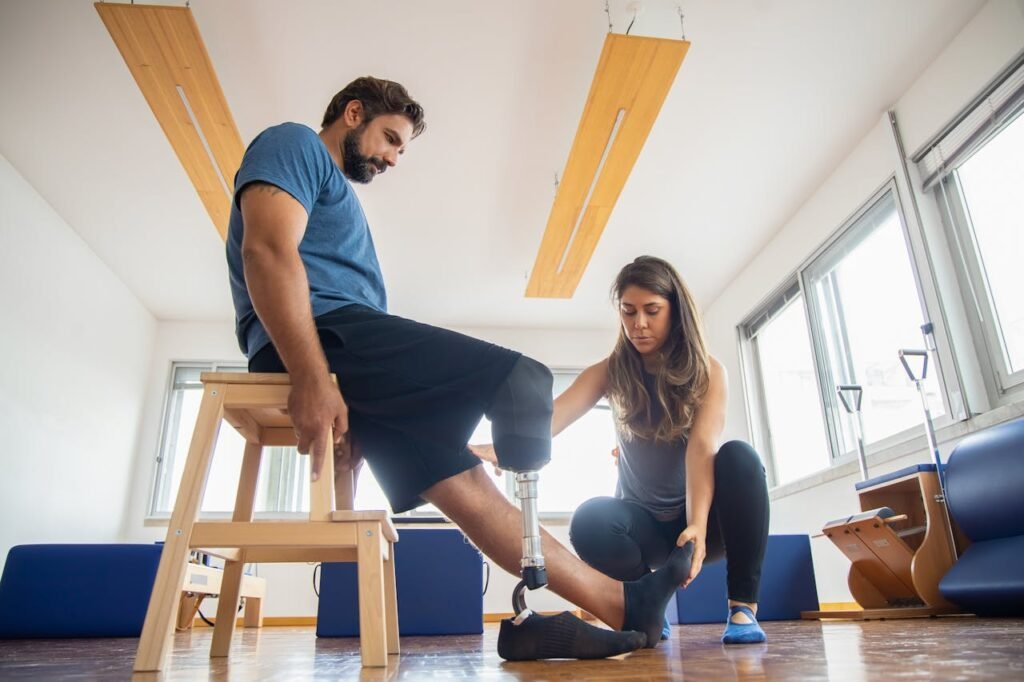When someone decides to get a prosthetic, most people focus only on the device itself—how it looks, how it works, and how much it costs.
But there’s another part that often gets missed.
The travel. The stay. The food. The time away from home.
For many families in India, especially those coming from smaller towns or rural areas, getting a prosthetic means traveling to a city. It means staying in a hotel or lodge. It means managing daily meals, transport, and maybe even taking time off work.
These costs add up. And if you don’t plan for them, they can hit hard—right when you’re already dealing with big changes.
That’s why we’ve created this guide.
We’re going to walk you through everything you need to know about the real cost of traveling for a prosthetic fitting. From train tickets to meals to hidden costs no one warns you about.
By the end, you’ll be able to plan your trip better, avoid last-minute stress, and even calculate your total trip budget before you go.
Let’s begin.
Why Travel Is Often Necessary for Prosthetic Fitting
Specialized Fittings Aren’t Always Local
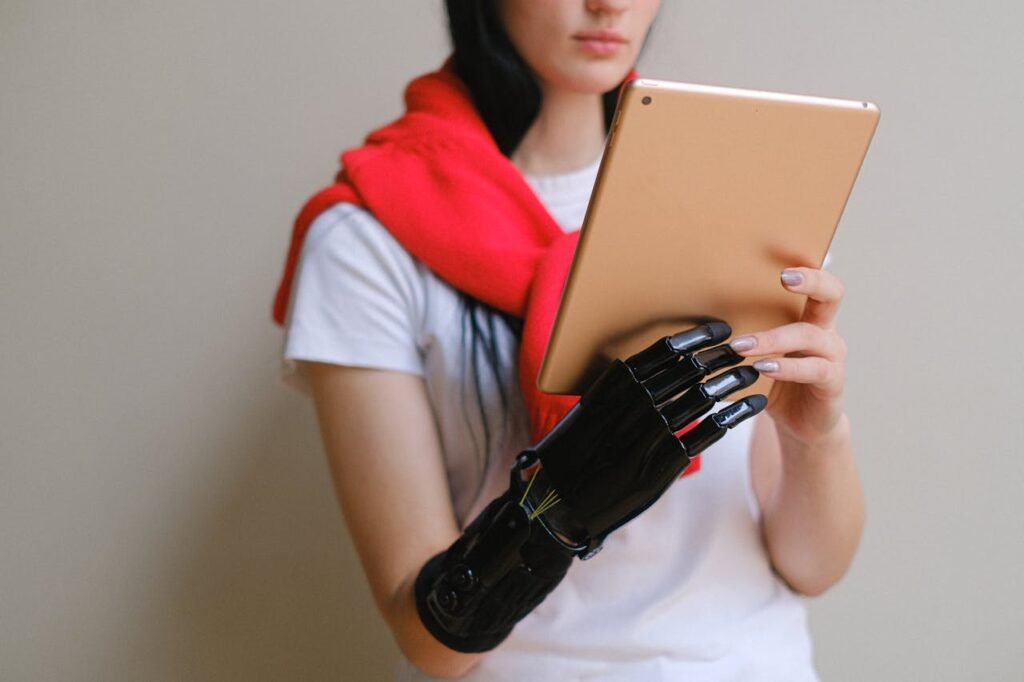
In many parts of India, especially rural and semi-urban areas, prosthetic services are limited.
Even if you can find a clinic nearby, it might not offer advanced fittings or custom socket design.
Prosthetic fitting is a specialized process. It often needs expert prosthetists, high-tech equipment, and trial rooms that many small clinics don’t have.
This is why many patients need to travel to cities like Pune, Mumbai, Delhi, or Bengaluru.
Fitting Requires Multiple Appointments
Getting a prosthetic is not a one-day job.
There’s an assessment. Then a socket trial. Then the actual fitting. Then final adjustments. And sometimes, training sessions afterward.
Each step may be spread across several days.
Some people try to complete the process in one visit. But in most cases, it takes at least 3 to 5 days.
That means staying in the city, arranging food, transport, and taking time off from work or school.
Planning ahead for all this saves you from running around last minute.
Total Trip Cost Breakdown: Where the Money Goes
Travel to the City
The first big cost is reaching the city where your prosthetic center is located.
If you’re coming by train, a second-class ticket may cost ₹300–₹1000 one way, depending on the distance.
If you’re traveling by bus, the cost may be slightly higher or lower, based on comfort and speed.
By car, fuel, tolls, and wear-and-tear can total ₹2,000–₹5,000 for a round trip from nearby towns.
If you’re coming from far away or another state, a flight may be needed. Budget airlines can offer one-way fares from ₹2,000–₹6,000, depending on the season.
Don’t forget: some people also pay for a caregiver or family member to travel with them.
This doubles the cost, but is often necessary for comfort and support.
Local Transport
Once you reach the city, you’ll need to move between the railway station, hotel, and prosthetic clinic.
Auto-rickshaws or taxis may cost ₹50–₹300 per trip, depending on distance.
If you’re using app-based cabs like Ola or Uber, surge pricing can push rates higher.
Over 4 to 5 days, local transport alone may cost ₹800–₹2,000.
Some prosthetic centers (like RoboBionics) are located in well-connected areas and can guide you on the cheapest local travel options.
Stay and Lodging
This is usually the biggest part of your trip cost after travel.
Lodges and guest houses near hospitals or clinics usually charge ₹600–₹1,500 per night for a basic non-AC room.
Budget hotels range from ₹1,000 to ₹2,500 per night for AC rooms with better cleanliness and services.
For a stay of 3 to 5 days, your total lodging cost may be anywhere from ₹2,000 to ₹10,000.
If you’re staying longer due to custom fittings or multiple sessions, this cost can go even higher.
Some clinics help book affordable lodges or may offer nearby accommodation at a discount. Always ask in advance.
Meals and Daily Essentials
Eating out three times a day can add up quickly.
Even basic meals in cities cost ₹100–₹150 per person, per meal.
If you stay for 5 days, meal costs for one person can easily go over ₹1,500.
Add tea, water bottles, snacks, and essentials like soap or medicines—and your daily cost rises further.
To save money, many families carry dry snacks, home-cooked items, or book stays with small kitchens where they can cook simple meals.
This takes planning—but saves a lot in the long run.
Missed Work or School
This is one of the hidden costs people don’t talk about enough.
When a parent, child, or breadwinner travels for a fitting, they may miss workdays. That means lost income.
If the child misses school, it may affect studies or exam prep.
For some families, missing 3–5 days of work can mean ₹2,000 to ₹10,000 of lost earnings.
If you’re self-employed or running a small business, the cost may be even more.
Planning your trip during a low-work period or school holiday helps reduce this impact.
Understanding the Fitting Process: Why You Need Multiple Days
Day 1: Evaluation and Consultation
The first day is usually for checking your limb, taking measurements, and discussing your needs.
You may also try some demo prosthetics to understand grip, weight, and size.
This session helps the prosthetist decide the right socket, hand type, and fit for your body.
You don’t need to stay long on this day—but you must be well rested and ready to share your goals clearly.
Day 2: Socket Trial and Adjustments
This is where you try the first version of your custom socket.
It’s like trying on a shoe before buying. If it’s too tight or loose, changes are made.
The socket must fit perfectly—otherwise, the prosthetic will never feel right.
Adjustments may take a few hours. You may be called again the next day if the changes are big.
This is why many fittings require more than one trip to the clinic.
Day 3–5: Final Fitting and Practice
Once the socket is ready, the full prosthetic is assembled and fitted.
You’ll learn how to wear it, remove it, charge it (if it’s electric), and clean it.
You’ll also start using it for simple tasks—like lifting, gripping, or walking.
In some cases, short training sessions are offered to build muscle memory and confidence.
This process may take one or two days. You’ll be asked to give feedback throughout.
Once the prosthetist sees that you’re comfortable and in control—you’re good to go.
Sample Trip Cost Calculator: Real Budget Planning
For a Patient Traveling from a Nearby Town
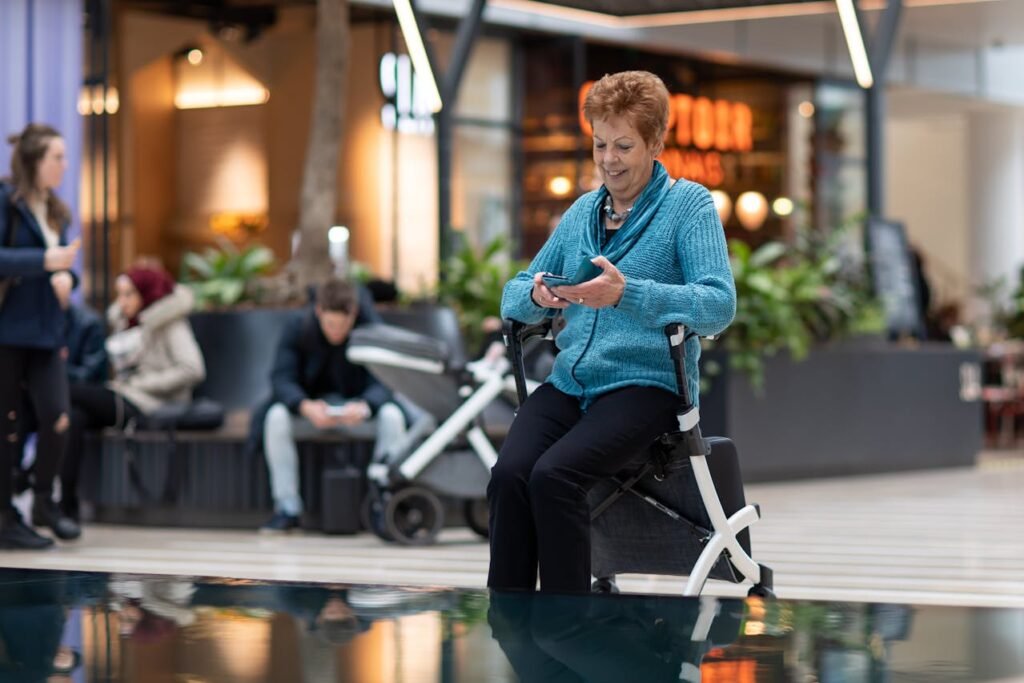
Location: Kolhapur to Pune (by train)
Stay Duration: 4 days
Type of Prosthetic: Below-elbow mechanical
Estimated Costs:
- Train tickets (2 people, round trip): ₹1,200
- Local transport: ₹1,000
- Lodging (₹1,000 x 4 nights): ₹4,000
- Meals (₹150 x 3 meals x 4 days): ₹1,800
- Essentials/snacks/medicines: ₹500
- Lost work wages: ₹2,000
Total Estimated Trip Cost: ₹10,500
For a Patient Traveling from Another State
Location: Lucknow to Pune (by flight)
Stay Duration: 5 days
Type of Prosthetic: Myoelectric hand
Estimated Costs:
- Flights (2 people, round trip): ₹12,000
- Local transport: ₹2,000
- Lodging (₹2,000 x 5 nights): ₹10,000
- Meals and daily costs: ₹2,500
- Medical kit, add-ons: ₹1,000
- Lost wages: ₹4,000
Total Estimated Trip Cost: ₹31,500
How to Reduce Travel and Stay Costs Without Compromising Care
Book Travel Early
Train and flight tickets are usually cheaper when booked in advance.
If your prosthetic fitting date is confirmed, try to book at least 15–30 days ahead.
This can cut your travel cost by 20% or more.
For train travel, using sleeper class instead of AC can save money, though comfort may be lower.
Always balance price with the needs of the patient. A tiring journey before a fitting may cause discomfort during trials.
Travel During Off-Peak Times
Avoid festive seasons or holiday rush periods when prices go up and cities get crowded.
Traveling during off-peak times means easier bookings, better hotel deals, and quicker service at clinics.
If your fitting is not urgent, talk to your prosthetist and choose a low-traffic week.
You’ll likely get more attention and save money across the board.
Use Clinics That Offer Travel Support
Some prosthetic centers, like RoboBionics, offer help with:
- Finding nearby hotels or guest houses
- Recommending affordable food places
- Arranging pickup from the railway station
- Guiding you to budget transport options
- Giving checklists so you don’t forget essentials
Don’t hesitate to ask for help. Most clinics want you to have a smooth experience and will share tips from past patients.
In some cases, they may even have partner lodges offering lower rates.
Share Stay with Family or Friends
If you have relatives or friends in the city, staying with them can reduce your stay cost to zero.
Just make sure the place is close to the clinic, or easily reachable by public transport.
If you’re coming with someone who needs special care (a child, an elderly person, or someone recovering from surgery), make sure the home has basic comforts—like a clean bathroom and easy entry access.
Even one or two nights saved at a hotel can cut your trip cost by a lot.
Carry Your Essentials
Many people end up spending on medicines, toiletries, snacks, or clothes they forgot to bring.
Make a checklist before you travel:
- Medical reports
- Any existing prosthetic (if replacing)
- Comfortable clothes
- Medication
- Snacks and dry food
- Water bottle
- Chargers, phone, ID cards
This avoids emergency purchases that are often more expensive in city markets.
Financial Help and Government Support Options
ADIP Scheme (Government of India)
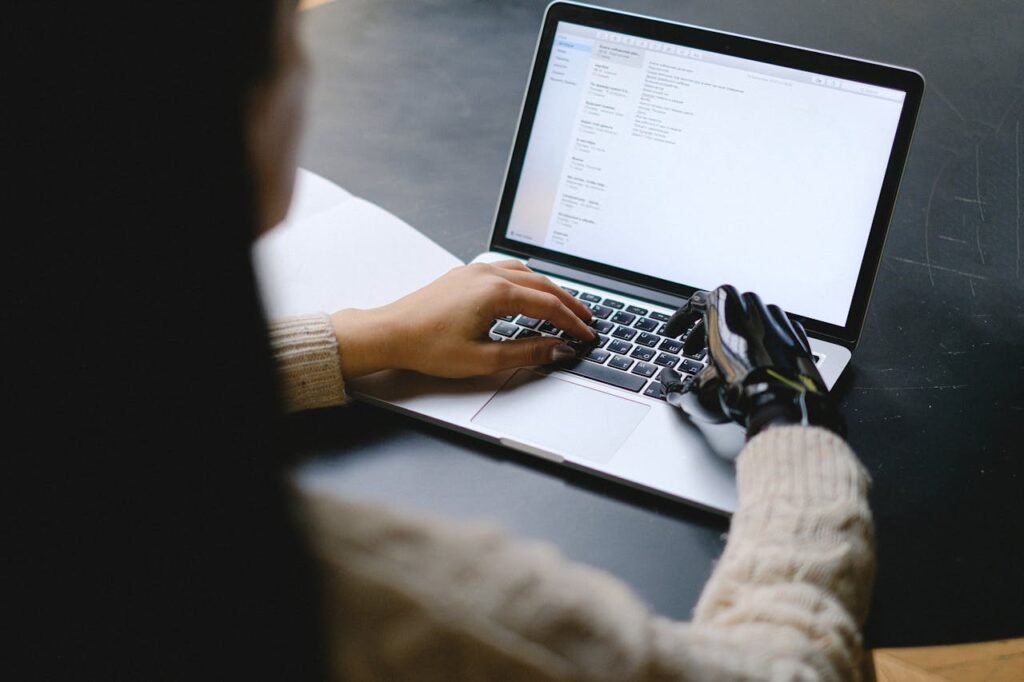
The Assistance to Disabled Persons (ADIP) scheme helps people with disabilities get free or subsidized prosthetics.
It’s run by the Ministry of Social Justice and Empowerment.
If you’re eligible, the cost of the prosthetic is either partly or fully covered.
However, it does not cover travel or stay—so you’ll need to plan for those separately.
Still, it’s worth applying. Saving ₹1–2 lakh on the device itself frees up budget for your trip.
Ask your prosthetic provider if they are ADIP-approved or can help with the paperwork.
NGO and Charity Assistance
Some non-profit organizations and foundations in India offer support for prosthetic users.
They may provide:
- Direct funding for the device
- Reimbursements for travel
- Help with lodging near treatment centers
- Food kits or coupons for hospital stays
- Access to low-cost rehab or therapy
You may need to submit medical documents, income proof, or a letter of need.
RoboBionics can connect you with some of these groups if you’re unsure where to start.
Even partial help can make your trip more manageable.
Crowdfunding Options
In recent years, many families have used crowdfunding platforms like Ketto, Milaap, and ImpactGuru to raise funds.
You can create a small fundraiser sharing your story, your goal (such as getting a prosthetic), and your estimated cost—including travel and stay.
Friends, family, and even strangers often donate small amounts that add up.
Many successful campaigns mention total trip cost—not just the prosthetic—because people understand the full journey.
It’s free to set up and can bring emotional support as well as money.
Planning Your Trip: Step-by-Step Timeline
One Month Before Your Visit
- Finalize the prosthetic center
- Confirm appointment dates
- Book train or flight tickets
- Check for nearby stays
- Begin arranging time off work or school
- Create your cost estimate
- Apply for support if needed (NGOs, crowdfunding, CSR)
One Week Before Your Visit
- Reconfirm all bookings
- Pack your travel and medical essentials
- Get all documents ready (ID, reports, test results)
- Confirm local transport options
- Let your clinic know your arrival time
Also inform your family or caretaker about your schedule, especially if someone is coming with you.
This helps avoid delays or surprises.
During Your Visit
- Keep bills and receipts (can help with reimbursements or tax)
- Note down any extra costs
- Ask your prosthetist about next steps: reviews, training, return visits
- Take photos of your setup for future reference
- If your stay gets extended, talk to the hotel early to avoid price hikes
If anything feels unclear, speak up. The more informed you are, the more control you’ll have over costs and care.
Hidden Costs to Watch Out For
Extra Days Due to Delays
Sometimes, a socket needs extra adjustments. Or your limb may need a rest day between sessions.
This can add an extra day or two to your stay.
Make sure your hotel booking is flexible, or check if you can extend without price hikes.
If you’re booking train tickets, leave some buffer in case plans change.
Companion Costs
If someone is traveling with you, their meals, tickets, and stay must also be added.
You may also need extra bedding or larger rooms.
Companions are often needed for emotional support, especially for children or first-time users—but they do increase costs.
Planning ahead helps manage this better.
Unplanned Medical Needs
Some patients may need pain relievers, bandages, creams, or support wraps during or after fitting.
These are usually low-cost but can add up if bought in the city.
If you already have a known skin sensitivity, sweat issue, or muscle tightness—carry related items from home.
Emotional Preparation for the Trip
It’s Not Just a Journey for the Body
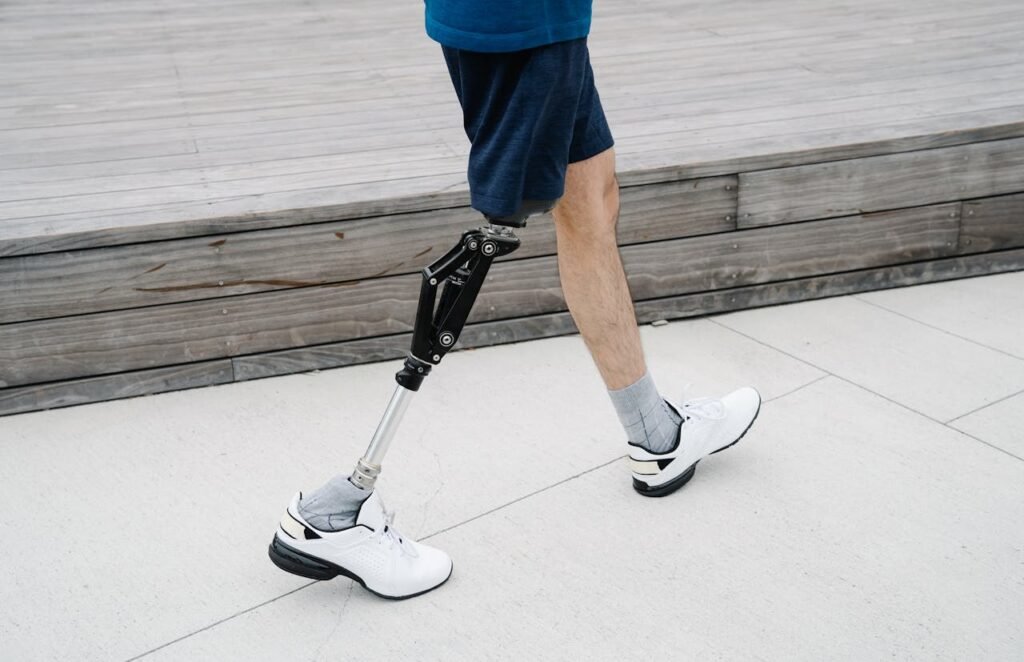
When you travel for a prosthetic fitting, you’re not just moving from one place to another.
You’re stepping into a new phase of life.
That comes with excitement—but also worry. Questions like:
Will it fit properly?
What if it hurts?
Can I really use it well?
These are normal.
Be gentle with yourself. It’s okay to feel nervous. It’s okay to feel unsure.
But remind yourself why you’re doing this—to gain independence, strength, and confidence.
You’ve already taken the first step by booking the trip. The rest will follow.
Bring Someone Who Encourages You
If you can, travel with a friend or family member who knows you well.
Someone who keeps you calm when you’re tense. Who reminds you to eat, sleep, and smile.
They may not understand prosthetics, but their presence alone makes the process easier.
And after a long day of fittings and practice, having a kind voice nearby helps more than you think.
Stories from Others Who’ve Been There
Ravi from Aurangabad
Ravi lost his hand in a workplace accident. He was scared to travel alone, so his uncle came with him to Pune.
He spent ₹7,000 on travel and ₹8,000 on a week’s stay. Meals and small expenses brought it to ₹18,000.
He says, “It was more than I planned, but I got my life back. That’s priceless.”
Now he runs a welding shop with his Grippy™ Mech Hand and encourages others in his village to seek help too.
Sujata from Nagpur
Sujata, a college student, came with her mother to get her first prosthetic finger.
They traveled by sleeper class train, stayed at a budget guest house, and brought food from home.
Their total trip cost was just under ₹10,000.
She says, “The clinic helped us find cheap stay options and gave a travel checklist. That made all the difference.”
She now writes, draws, and studies confidently with her new finger.
Tools to Make Budgeting Easy
Create a Simple Spreadsheet
Even a basic notebook or mobile app can help you track trip costs.
Make columns for:
- Travel
- Stay
- Meals
- Local transport
- Essentials
- Companion costs
- Lost work days
Update it daily during your trip.
This helps keep spending in check—and gives you a clear idea for future visits.
You can also use this info for insurance, CSR reports, or to help someone else in your community.
Use Online Maps and Apps
Before you travel, use Google Maps to check the clinic’s location and nearby options for:
- Lodging
- Medical shops
- ATMs
- Affordable food spots
Apps like Zomato, Ola, Uber, Redbus, and IRCTC help you compare prices and plan better.
If you don’t use apps often, ask a younger family member to help set them up before the trip.
Final Thoughts: It’s Not Just a Trip, It’s a Turning Point
Plan Like It Matters—Because It Does
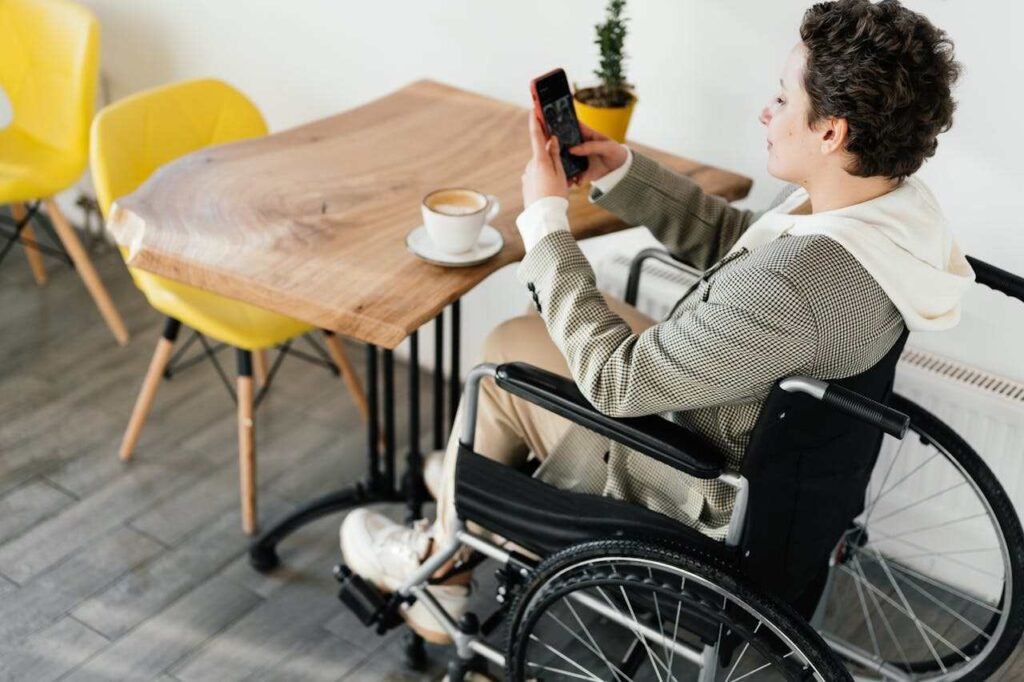
Traveling for a prosthetic fitting is not a vacation. It’s a life-changing moment.
It deserves preparation, care, and calm planning.
Yes, there will be expenses. Yes, there may be surprises.
But when you’re ready, none of them will stop you.
A few thousand rupees spent now can give you back something priceless—movement, dignity, and joy.
Ask for Help. You’re Not Alone.
Whether it’s your first prosthetic or a return visit, don’t hesitate to ask questions.
Ask your provider for:
- Guidance on booking
- Help with stay
- Cost planning
- Advice for travel safety
- Checklists for packing
At RoboBionics, we believe the journey should not feel harder than it already is. That’s why we walk with you, step by step.
Ready to Plan Your Visit?
We know this decision isn’t easy. But it’s the right one.
If you’re ready to take the next step, we’ll help you:
- Understand your prosthetic options
- Plan your travel and stay
- Estimate total costs in advance
- Find low-cost, high-comfort solutions
- Book a smooth, successful trip
Let’s make this easier together.
Book a free consultation now:
robobionics.in/bookdemo
We’ll help you calculate your full trip cost—and everything else that matters.
Because you don’t just deserve a good prosthetic.
You deserve a good experience too.



